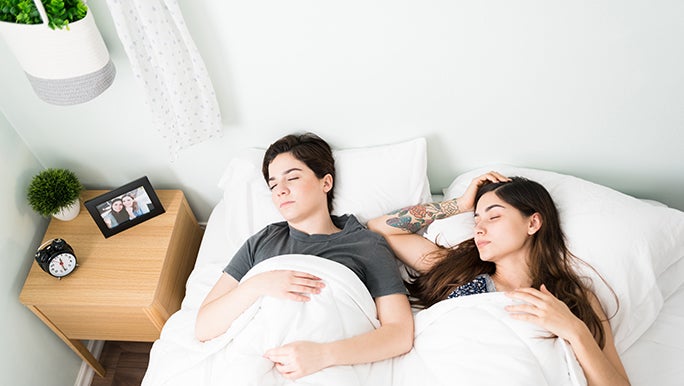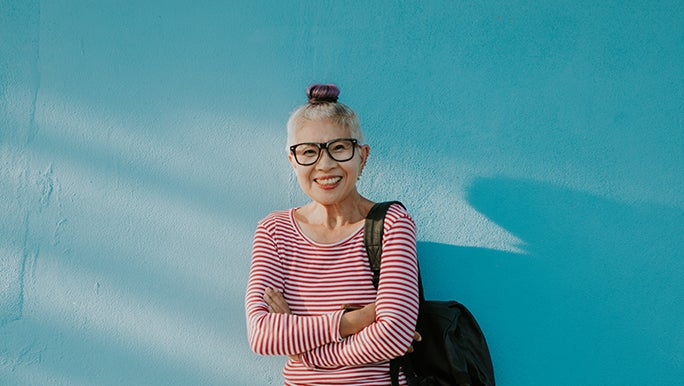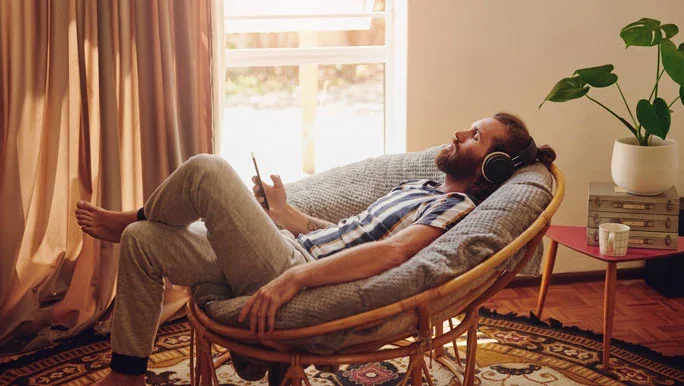If you can’t sleep after seeing a cockroach, that’s one thing. But regularly finding it hard to fall asleep is another thing altogether. There really is nothing more frustrating than lying in bed, wide awake when all you want to do is sleep.
Meanwhile, your partner falls asleep as soon as their head hits the pillow. So, if counting sheep isn’t working for you, try the expert sleep hacks below from sleep specialist, Dr David Cunnington.
Focus on rest, not just sleep
While sleep is important, Dr David says it’s not the only restorative process you could benefit from.
“As human beings, we actually need rest, as well as sleep. However, sometimes people put all their eggs in one basket and focus only on sleep while ignoring rest,” he explains.
As a result, we end up putting too much pressure on ourselves to get the perfect night’s sleep. Dr David says that the solution lies in making time for rest and relaxation.

Sleep is driven by what’s happening in our bodies and our minds. It’s also impacted by how we live our lives on a day-to-day basis.
“Build in some time for rest, replenishment, recuperation and restoration of energy. Then, falling asleep becomes less important. There’s less riding on it because we know it’s not our only shot of putting some energy back into the tank,” he says.
The challenge is setting aside the guilt that many of us feel about resting instead of getting everything done. That’s where self-care comes into play.
Take care of yourself during the day
According to Dr David, sleep is a mirror of our waking lives.
“Sleep is driven by what’s happening in our bodies and our minds. It’s also impacted by how we live our lives on a day-to-day basis,” he says.
If you’re wondering why you feel so tired and why you can’t switch off at night, Dr David says to look at how you spend your days.
“People whose days are characterised by running on high levels of nervous energy, they might find they can’t switch off at night, or that they experience restless, jumpy sleep,” he explains.
For better sleep, Dr David recommends spending more time looking after your physical and mental wellbeing during the day because, ultimately, this is what’s going to impact sleep.

People whose days are characterised by running on high levels of nervous energy, might find they can’t switch off at night.
Go easy on the blue light
As Dr David explains, we feel sleepier when melatonin levels rise naturally as the light changes to a warmer colour temperature at sunset before going dark. But, using our phones right before bed has implications for our sleep because exposure to blue light from screens suppresses melatonin.
“What we do know is that suppression of melatonin can impact sleep. Your brain thinks the blue light from your phone is the morning sun, and melatonin levels don’t rise. This means you miss out on the natural sleepy feeling,” he says.
So tonight, take it easy on the pre-bed scrolling to help minimise the effect screens may be having on your sleep.
Have some R&R to catch those Zzz’s
It’s hard to prioritise rest and relaxation when our daily lives are so busy. Yet, as Dr David says, sleep is a mirror of our waking lives.
So, if you’re wondering how to sleep better, try taking time out to care for yourself during the day. You may find this restfulness reflected in a good night’s sleep.
Related:
Dr David Cunnington is a specialist sleep physician who helps his clients to treat their complex sleep problems while also promoting sleep health through education, research and advocacy.
Reviewed by the healthylife Advisory Board September 2021.


